
























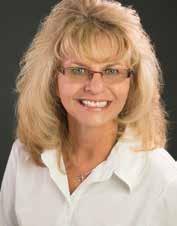
A little fun family history... I was born at a time when mothers stayed in the hospital for about a week to recover from giving birth. The youngest of six children, and the fourth girl in our family, my parents struggled to find the right name for me. Our family has long joked about the fact that the day before our mother was to bring me home, the nurses brought her a tray with names on little slips of paper, explaining that I simply must have a name, or they couldn’t let me go home.
My sisters all have fun, cute names ending with either and “ie” or an “i,” and yet she chose Sandra for me. A name I have always felt was very formal and stiff. My piano teacher always felt the need to add a “u” in there to make it an even more formal, Saundra. Anyone who knows me knows that I’m anything but formal, and wanting to be cute and fun like my sisters as I entered junior high, I chose to go by Sandy.
In my early teens someone was talking about what their name meant. I was shocked. What did they mean? So I found a baby name book and looked up “Sandra.” I was unimpressed to see that it said “helper of mankind.” Why couldn’t it be something more profound, like “world changer,” or fun like “eternal ray of sunshine?” Nope, for me it was “helper of mankind.”
When I was in the 4th or 5th grade we lived next door to a couple who were both retired school teachers, George and Margaret Judd. I loved them so much. They were like local grandparents to me. The Judds had a big, beautiful garden, and Margaret canned or froze everything. One summer they had a bumper beet crop and I spent days at their home helping her can or pickle beets. I was enthralled by how the skin would just “pop” off of a hot beet. It was fun!
Meanwhile my own mother was next door doing our family canning. It wasn’t as much fun to help Mom, partly because she wasn’t doing beets, but it just wasn’t. When Margaret told Mom what wonderful help I’d been, Mom was quick to reply that it would be great if I was as much help for her.

Our family owned a drive-in restaurant, and I actually went to work there at the ripe old age of 13, and worked there off and on
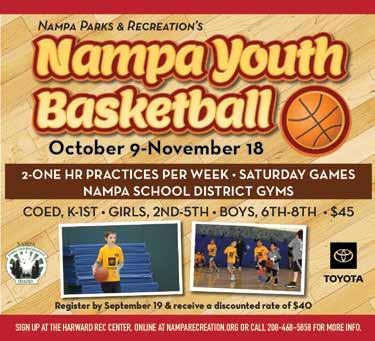
until we sold the drive-in when I was 33. I’m grateful for the many lessons I learned there. Our mother lead by example; there was no job beneath her, and she was naturally business savvy.
As the drive-in was out in the country, she didn’t see the need to advertise, emphatically telling most ad sales reps, “There’s hamburger joints on every corner, nobody’s going to drive 20 miles for a burger.” She knew what the standard ad budget should be, so each August she would contact the schools near the drive-in and ask the guidance counselors how many students in their school couldn’t afford school supplies. She would give the counselors enough money out of her “ad budget” to go buy those supplies on the condition of anonymity. She never wanted those children, or their parents, to know where the help came from. She grew up poor, and knew what it was like to go without.
If someone was ill, or lost a family member, we would quickly gather together a meal in the back room of the drivein, and off she would go to show them a little love and support.


She was a “helper of mankind,” and showed each of us what it was to live that walk. Mom was very quiet about her faith, but instead lived it out each and every day.
Christian Living Ministries is what God has called me to do in this season in my life, and as I look back I see that Mom chose the best name for me. Did the Holy Spirit guide her? Most likely, knowing before the beginning of time that this would be my calling. In the Bible we’re often told what names meant. In Hebrew Jesus means “to rescue; deliver”; Abraham means “father of multitudes.” I’ve always felt bad for poor Jabez, whose name in Hebrew means “pain.” I can’t imagine living with that moniker over my head every day.
“…the Son of Man did not come to be served, but to serve, and to give his life as a ransom for many.”
—Matthew 20:28 NIV
Scripture calls us to serve, just as Jesus served. Our mother’s lessons were not lost on any of us. I watch in amazement as I see each of our siblings, and their spouses, lend a helping hand in some of the most unique situations. Whether chairing fundraisers for children with cancer, teaching school, serving in government municipalities, assisting elderly neighbors, helping with grandchildren and great grandchildren, serving our communities and church bodies, or working in full-time ministry, we all serve.
One of my favorite memories will always be from this summer when 3 of “the sisters” were able to bless our oldest brother and his wife as she is recovering from major back surgery. As siblings, Dave and Jerry have led the way for our entire adult lives, and it was with joy that each of us were able to take a turn and go show them some extra love, much as they’ve shown us, and just like Mom would have done.
We never know who is watching us, and this walk down memory lane is a great reminder to me to be a great example every day and everywhere I go. Thanks for coming along for the ride!
Until next time…
God Bless!

I know I ask this each time, but only because it’s so true. Please remember to frequent our advertisers. Without them, there would be no Christian Living Magazine. Please shop them, and thank them for their continued support. n



MasterMinded Student Ministries will present “The Dark Road” by Laura Lundren Smith at 6 p.m. Friday, September 22, at Deer Flat Free Methodist Church, 17703 Beet Rd. in Caldwell. This will be a dinner/drama fundraiser event. Cost of the dinner/drama combined is $35/person, with only150 dinner seats available. Seating for dinner starts at 6 p.m. Cost to view only the drama is $10/person, with seating beginning at 7 p.m. For more information, contact Jerri McGarrah at jmcgar7@gmail.com or go to mastermindedministries.org. Also, the annual dinner/auction fundraiser for MasterMinded Ministries will be held at 6 p.m. Thursday, October 12, in the lobby at Deer Flat Free Methodist Church. This is an event that has been offered to the community since 2017 to educate people about Israel. Money raised will be used to send 52 students and their parents on a trip to Israel in March of 2024. For more information, contact McGarrah or visit the website. n

 By Daniel Bobinski
By Daniel Bobinski
What do we make of the comment by Jesus in the sixth chapter of John, verse 35, where He says, “I am the bread of life. Whoever comes to me will never go hungry, and whoever believes in me will never be thirsty.” That’s quite an analogy, and quite a claim. Let’s unpack it.
First off, what do we know about bread? We know it’s been around since before each of us was born, because bread is one of the oldest-made foods on earth. For millennia it’s been a staple on most continents, and it’s considered a basic for sustenance. Think of prisoners surviving on bread and water alone.
Just like bread is a basic food that can sustain life in our physical bodies, Jesus sustains our spiritual bodies. But a difference exists. When we eat physical bread, we eventually get hungry again. But that doesn’t happen in heaven. Jesus told them straight up: “Whoever comes to me will never go hungry.”
This doesn’t mean we will never run out of food to eat. It means we will never go hungry.

I am reminded of the testimonies of several people who have died physically, went to heaven, and were sent back. The testimony of Dean Braxton comes to mind specifically. (If you’ve not heard Dean’s testimony, multiple videos of his experience in heaven can be


found on YouTube – and for multiple reasons I believe his story.) People have asked Braxton what kind of food people eat in heaven. His response has always been that there is no need to eat in heaven because Jesus sustains you. “You aren’t hungry,” Braxton says.

Braxton says you can eat if you want to, but there’s no need to eat because you just don’t get hungry in heaven. This aligns perfectly with John 6:35 – whoever comes to me will never go hungry.
But we also need to read John 6:35 in context. This verse comes immediately after 5,000 people were fed with only five loaves of bread and two fishes (John 6:1-21). Afterwards, Jesus and His disciples crossed the Sea of Galilee in a boat and landed in Capernaum. The next day the crowds arrived in Capernaum and asked Jesus for a sign to prove He was the Messiah.
As if feeding 5,000 people with five loaves and two fishes wasn’t enough.
Jesus’ response is what we read in John 6:35: “I am the Bread of Life.”
Not thinking spiritually, the crowd asked for clarification. Stymied by worldly and short-sighted thinking, many did not figure out what He was saying and decided they weren’t going to follow Him.



They didn’t understand that their nourishment the previous day just appeared before them, seemingly out of nowhere. They didn’t realize that it was being provided by the Most High, and that by Jesus telling them that HE was the Bread of Life, He was giving them an analogy. Once in heaven they would be provided for in the same way. They would never need to work again to have sustenance. It would be provided for them seemingly out of nowhere from God’s abundance.
It had been less than 24 hours since He fed them in that miraculous way, but when Jesus said, “I am the Bread of Life,” they were thinking physically. They weren’t thinking spiritually.

Your Favorite Meal: Think about it. When you sit down to your favorite meal after not eating for a while and you eat your fill, you become physically satisfied. You can sit back, relax, and enjoy the feeling of being full. You no longer have a desire for physical food because your needs have been met.

Similarly, when we are in our spiritual bodies in heaven, we will feel full and satisfied. Always. It will be permanent.

The Process of Making Bread: There is one more aspect of bread I’d like to cover here, metaphorically speaking. On earth, bread is made by crushing wheat or some other grain into a type of flour, mixing it with water or other ingredients, and then baking it in an oven.
The “bread” doesn’t officially become bread until its basic ingredients have been crushed and then submitted to the flames. Only after it comes out of the oven is it called bread.
Similarly, on earth, each of us endures hardships and difficulties that can be, at times, crushing. It’s not like everything in our lives just falls into line and becomes all rosy once we accept Jesus’ sacrifice and become born again. Quite the contrary. One need only look at the example of Paul in the book of Acts to see that he suffered greatly as he was refined and molded by God into being a bold witness.
With that in mind, let me ask you to remember the opening verses in the book of James (James 1:2-4): “Consider it pure joy, my brothers and sisters, whenever you face trials of many kinds, because you know that the testing of your faith produces perseverance. Let perseverance finish its work so that you may be mature and complete, not lacking anything.”
Rather than get discouraged by life’s trials and tribulations, we can count it all joy. After all, Paul writes in his letter to the Romans, chapter 8 verse 19, that those of us who are born again are being “conformed to the image of His Son.”
Jesus endured trials. And so will we.

As one person told me, “When we, as Christians, go through life’s trials, we shouldn’t fret. It’s just God baking up some delicious bread.”
Regardless of whether that analogy resonates with you, you can still take comfort in what Jesus told us. He said that He is the Bread of Life, and whoever comes to Him will never go hungry.
That’s an eternal promise that we can all look forward to. n
Daniel Bobinski, Th.D., is an award-winning and best-selling author and a popular speaker at conferences and retreats. Reach him at danielbobinski@protonmail.com or (208) 375-7606.

Image by Alexander Lesnitsky from Pixabay

When I pray for my three grandchildren, what do I want? That they give their hearts and souls to Jesus, that they have a real and personal relationship with Him, that they center their entire lives around His revelation, beauty, love, and holiness. My own Christian identity is so precious to me that as a grandfather I naturally want my grandkids to embrace Christ with the same heart-felt fervor as do I. But it can’t stop there. My grandkids will face far greater challenges to their faith across their lives than did my babyboomer generation.
Western culture is changing so swiftly that much of the Church is being overwhelmed. For various reasons – the Covid shut-downs, the alienating power of social media, the ongoing fragmentation of the social order (strangers are to be positively feared now), the politicization of everything, the shallowing out of the church experience – Americans are attending church less often, as a population, than ever before. Gallup Poll reveals that Americans were attending church, in pre-Covid years, at a 34% clip. Since Covid? It is down to 30%. Specifically among Protestants, since 2020, Gallup notes that regular church attendance has gone down from 44% to 40%. For Catholics? That situation is worse: from 37% to 30%.1 But that’s just the churchattendance way of assessing this slide.
More grievous to me, as a former full-time theology professor? The worldview slide that is at work inside of American culture. Gallup recently found out that Americans believe the moral state of our nation is trending down at a quick pace. Moreover, that perception of moral-decay trending downward is felt among Independents, Republicans, and Democrats.2
And then there are the millions of self-identifying Christians who are steadily abandoning standard biblical teachings. Gallup notes in a recent study that the percentages of Americans who believe in religious entities (God, the devil, angels, hell, and heaven) is itself trending down. Since 2016, Gallup reveals, belief in those five Christian realities is down some 3% to 5%.3 Again, this is a rather simplistic way to assess the trends at work amongst us, but it is indicative of something.
Let’s slice the cheese even more thin. How are people living their lives? Assessing reality? What do they think is ultimately real? What are their goals, impulses, yearnings, and dreams? What guides their daily decisions? What do they believe unites us as fellow citizens? Now we’re asking questions that get down into the soul of the matter. Because whether folks admit it or not (often they do not admit it), or whether folks are aware of it or not (and often they are not aware), something is guiding their decision making. Something is the center of their worldview, their orientation to life, their evaluative powers.
Aristotle once famously wrote, “horror vacui,” or in English, “nature abhors a vacuum.” Something always rushes in to fill a gap, an emptiness, a void. By definition, inside a void there is no structure, no resistance, no there-there to halt movement or intrusion. As our culture steadily (and now even with gleeful celebration) abandons its traditional Christian moorings it is not nothing that is rushing in to fill that vacuum. No, it’s the
Sources:
“something” rushing in that is dissolving and deconstructing a formerly, if tacitly embraced, Judeo-Christian worldview inside both culture and the Church. That something? An evolution-based perspective on life’s origins. And its effects go deep and wide. This post-Christian orientation to life is energetically re-shaping social institutions like education, law, politics, economics, and now even theology departments. But let’s keep our focus more narrow.
Let’s take something as prevalent as the human mind. Proponents of evolution tell us that every organic thing that exists is present owing to this formula: chance + accident + enough time + coping techniques = something. You give reality enough time and owing to chance and/or accident and/or survival techniques and something will have (actually did, as it turns out) result. (Never mind asking questions about the nature of reality such that that magical formula can actually do what its proponents suggest.)
And so? The human mind is not something intentionally designed by a master creator; it is the result of millennia-on-end’s worth of trial and error. The mind is not something that really and actually exists, as inherent to what it means to be human, but is instead merely the way human materialistic physiology has learned – again, across the many centuries – to cope, and to survive. The mind is not something given to us by our Creator so that we can, like Him, think, share consciousness, or process reality. No, behind the human mind – so say the ardent Evolutionary nihilists – there is finally. . . nothing.
So what? What does this mean for my grandchildren? Yours? It means that the game has changed. Big time. It means that as family members we cannot, and as members of the body of Christ, we cannot any longer assume that a Judeo-Christian worldview is prevalent, or even tacitly accepted, by our culture; not even here in spectacular Idaho. Our children and grandchildren will not grow up in an environment where biblical teachings are widely embraced. Our public institutions – schools, city halls, state and local governments, a sort-of-free-market economy, and families – are now all steeped in a materialistic philosophy that denies there is any inherent dignity to being human. The ruling orientation to life is that the ultimate there-there is a nothing. And so the void must be filled with power. That rush-to-power is why everything is getting politicized.
And all that? Presents an enormous challenge to me as a grandfather. More broadly? It presents an enormous challenge to the Church as the body of Christ. How will we respond? n
Ed Rybarczyk (Ree-BAR-check), Ph.D., is both an ordained minister and a retired History of Theology professor. He now produces and hosts the Uncensored Unprofessor podcast @ uncensoredunprofessor.com. He can be reached at uncensoredunprofessor@gmail.com.

1) https://news.gallup.com/poll/507692/church-attendance-lower-pre-pandemic.aspx (dated 6/26/2023).
2) https://news.gallup.com/poll/506960/views-state-moral-values-new-low.aspx (dated 6/9/2023).
3) https://news.gallup.com/poll/508886/belief-five-spiritual-entities-edges-down-new-lows.aspx (dated 7/20/2023).


The Caldwell Fall Prayer Walk will take place Saturday, October 14, starting at 3 p.m. at the Caldwell Memorial Park Bandshell. Participants will walk around downtown Caldwell and stop to pray at various locations, according to walk organizer Arlene Robinett.

“We pray for the police, paramedics, firemen, the mayor and city council members, health care workers, the college and schools, students, teachers, administrative staff, bus drivers, for a day care center for the homeless, for food insecure families, for human trafficking victims, for graffiti to go away, for the elimination of gangs, illegal drugs, and violence, and for all of Caldwell's businesses to do well,” Robinett said.
This is a family event for people of all ages. Anyone who doesn't want to walk may stay at the bandshell and pray. All are invited.
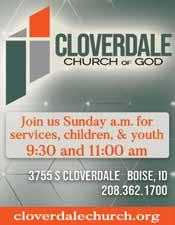
“We have a wonderful time of being together and praying for our wonderful city,” said Robinett.
A potluck dinner will be held following the walk, and those who attend are invited to bring a favorite dish to share.
For more information, contact Robinett at (208) 391 8516. n



 By Gary Moore
By Gary Moore
Who talks more, women or men? According to the stereotype, women talk too much. Throughout history, women have been punished for talking too much or in the wrong way. According to linguist Connie Eble, a variety of physical punishments were used in Colonial America on women who talked too much.

Though such institutionalized corporal punishments have given way to informal, often psychological ones, modern stereotypes are not much different from those expressed in the old proverbs. Women are believed to talk too much. Yet study after study finds that it is men who talk more – at meetings, in mixed-group discussions, and in classrooms where girls or young women sit next to boys or young men.
Who really does talk more: women or men? The seemingly contradictory evidence is reconciled by the difference between what Deborah Tannen (internationally recognized linguistics professor at Georgetown University) calls public and private speaking. More men feel comfortable doing “public speaking,” while more women feel comfortable doing “private” speaking. In other words, report-talk, and rapport-talk.
For most women, the language of conversation is primarily a language of rapport: a way of establishing connections and negotiating relationships. Emphasis is placed on displaying similarities and matching experiences. From childhood, girls criticize peers who try to stand out or appear better than others.

For most men, talk is primarily a means to preserve independence and negotiate and maintain status in a hierarchical social order. This is done by exhibiting knowledge and skill, and by holding center stage through verbal performance such as storytelling, joking, or imparting information. From childhood, men learn to use talking as a way to get and keep attention.
Studies have shown that if women and men talk equally in a group, people think the women talked more. Dr. Tannen says that men think women talk a lot because they hear women talking in situations where men would not: on the telephone; or in social situations with friends, when they are not discussing topics that men find inherently interesting; or, at home alone – in other words, in private speaking.
Home is the setting for the American stereotype that features the silent man and the talkative woman. The complaint most often voiced by women about the men with whom they are intimate is “He doesn’t talk to me” – and the second most frequent is “He doesn’t listen to me.”

Sources as lofty as studies conducted by psychologists, as down to earth as letters written to advice columnists, and so sophisticated as movies and plays come up with the same insight: Men’s silence at home is a disappointment to women. Again and again, women complain, “He seems to have everything to say to everyone else, and nothing to say to me.”
The film “Divorce American Style” opens with a conversation in which Debbie Reynolds is claiming that she and Dick Van Dyke don’t communicate. And he is protesting that he tells her everything that’s on his mind. The doorbell interrupts their quarrel, and husband and wife compose themselves before opening the door to greet their guests with cheerful smiles.
Behind closed doors, many couples are having conversations like this. Like the character played by Debbie Reynolds, women feel men don’t communicate. Like the husband played by Dick Van Dyke, men feel wrongly accused. How can she be convinced that he doesn’t tell her anything, while he is equally convinced he tells her everything that’s on his mind? How can women and men have such different ideas about the same conversations?
When something goes wrong, people look around for a source to blame: either the person they are trying to communicate with (“You’re demanding, stubborn, self-centered”) or the group that the other person belongs to (“All women are demanding”; “All men are self-centered”). Some generous-minded people blame the relationship (“We just can’t communicate”). But underneath, or overlaid on these types of blame cast outward, most people believe that something is wrong with them.
If individual people or particular relationships were to blame, there wouldn’t be so many different people having the same problems. Dr. Tannen says the real problem is conversational style. Women and men have different ways of talking. Even with the best intentions, trying to settle the problem through talk can only make things worse if it is ways of talking that are causing the problem in the first place.
That’s why mutual understanding in this area is so critical. Without this understanding, you’ll make assumptions and assign motives that are wrong and thus exacerbate the problem. You’ll find The MUM 3 Step Connection Plan of great assistance in this area. You can check it out at my website, www.mutualunderstanding.net. Not right or wrong – just different, by design. n
Gary Moore served as associate pastor at Cloverdale Church of God for 15 years. He does couples’ coaching and leads couples’ workshops and retreats called MUM’s the Word. He has a weekly radio program – Life Point Plus – on KBXL 94.1FM at 8:45 a.m. on Fridays. His website at www.mutualunderstanding. net has video teachings and other resources for couples. He may be contacted at glmoore113@gmail.com.
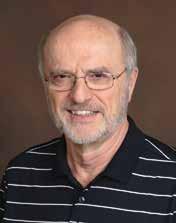








Over the course of his 70 years, Ron Price achieved successful white collar executive status, but he started out working for his dad in the blue collar occupation of truck tire treading. “I would go out and change semi-truck tires on the highway at night,” Price says, “and during the day we would put new rubber on tires.”
Initially he saw that work as insignificant and ‘just a paycheck’, but he’d change his mind about the tire business later down the road.
His teenage years were pivotal for Price in diverse ways.
“I actually went to college before I was 17,” he explains. “I went to Michigan State when I was 14 and 15 years old. I was in the theater program, and I really didn’t take anything other than theater classes. That’s all I was interested in.”
His theater classes offered him opportunities to travel. During the school year, the troupe would traverse the U.S.; in summer, they’d tour Europe. “It was in the civil rights time, so we performed a variety show that was really built around themes on civil rights,” Price states.
The businessman says that his teen theater classes were his only college training, but he attended what was then a different sort of business school common at the time. “Back when I went to business school, it was not at an institute of higher education. These were corporate business schools back then, so I went to Uniroyal’s Corporate University, where I learned things like reading financial statements and managing collections and sales and operations.”
Another crucial event in his teenage years was becoming a follower of Christ.
“We grew up going to church every week back in Lansing, Mich., where I’m from. When I was growing up in the ‘50s and ‘60s, our country was still a pretty biblically-based worldview country, so you would go to church on Sundays. You may not have that much of a real connection to God, but you believed in God and you sang the hymns and things like that, and so I did that,” Price states.

It may sound like a rather tepid start to faith, but it laid the foundation.
Price explains, “Through my teen years I started searching and looking at different things, and I studied the Baha’i faith. I thought I could find God through intellectual pursuit, and it was really when I recognized it’s a heart issue that I realized I really needed a Savior. I fundamentally could not overcome the problem of sin in my life.
“As a teenager, I really thought that I could be a good person. My ‘bible’ at the time was The Art of Loving by Erich Fromm, who was a pop psychologist in the ‘60s. I had friends who kept telling me that wasn’t going to be enough – that you really had to understand the nature of your relationship, or lack of relationship, with God.”
At age 17, Price got in his car and steered himself out of town and to a field. He estimates the date at around August 1, 1971. He took with him a Bible he’d gotten in third grade for memorizing a pair of Psalms, and he walked out into the middle of the field, sat down solo, and said to the Creator: “Okay God, I’m giving You a chance. If You exist, You can show up now.”
Perhaps he anticipated a whirling cloud and a deep bass voice calling, “I’m here, Ron. Thanks for coming.” But in fact what actually occurred was Price sitting for a minute or two and then being consumed by a cloud of hungry mosquitoes instead. He says with a touch of humor, “I’d heard of the devil and thought, ‘Oh that’s the devil, trying to keep me from meeting with God.’ Well, the devil won cuz I got bit by mosquitoes so much I ran back and got in the car.”
A reader might now think that the teenager returned to his vehicle, turned the key in the ignition, and hightailed it away from the field of insects. But thankfully, the young man was still set on making a connection with his Lord. “I got in the car and it’s the first time I remember praying out loud and having it be my prayer. I said, ‘God, I know You’re there, and I know I have no right to put any demands on You because I’m a sinner’ – and that was it. I drove away and I said to my friends later when I saw them, ‘You can leave me alone
now because I gave God a chance and He didn’t show up, so you don’t have to bother’.”
His youthful coterie of companions, all of whom were believers, were having none of his cavalier dismissal of God, and they said to him, “Oh, wait a minute, wait a minute! Come with us!”
Price states, “They took me to a place and talked to me for a couple hours. I don’t remember a thing they said, but I’m sure they were reading from the Bible. And finally, one of them asked, ‘Ron, do you want to accept Jesus?’, and I said, ‘Yes’, because I thought, ‘Well, it can’t hurt, and I don’t know exactly what he means to ‘accept Jesus’, but if nothing else, I’ll get them off my back and they’ll leave me alone’.”
His friends led Price through the Sinner’s Prayer. By then, the time was somewhere near O-dark-hundred and the teenager didn’t get home until roughly 3 a.m. A disciplined person even then, he slept briefly and then got up at 7 a.m. to go to work. But getting up that morning was different from other mornings. Something changed.
“I got up, and it wasn’t a big emotional experience, but all of a sudden I cared about what God’s will was; and because I had a theater background, my friends, years later, confided in me that they thought I was acting – they thought it was all an act because I just did a 180. Nothing mattered but what God’s will was.”
It’s been the same for Price ever since.
“I’d made a commitment to the Lord on August 4, 1971, and of course I just gobbled the Scriptures up and got involved in Bible studies and prayer meetings.”
He also engaged in “street work,” committing full-time to helping gang members and drug addicts and prostitutes in Lansing. He did that for about four months until the work got shut down by an urban renewal project.
Also seeking work at the time, he ended up back at his father’s truck tire treading shop, eventually becoming a co-owner and building three more truck tire retread businesses with his dad, for a total of four (in Lansing, Detroit, Traverse City, and St. Louis, Michigan). His perspective changed and he no longer dismissed the work as trifling. “I began to see that work could be spiritual, and it had to do with how you serve your customers. It had to do with how you relate to your co-workers, and the commitment to doing your best.”
Price and his dad were partners in the business for about five years. During that time, Price was training for the lay ministry, and
in 1977 he was ordained a lay pastor. In November of ‘77, he sold his stock in the business and went into full-time church work. “I was doing administrative things and I was pastoring, counseling, speaking, and I was particularly interested in understanding people’s unique talent, what made them different; and I was also very interested in how you could help churches develop strategy.”
After nine years, Price became aware of a gnawing discontentment.

“I started to feel there was more that God wanted to do with me,” he states. “I was at a pastors’ conference in April of ‘86 and I distinctly felt that God spoke in my heart, saying that I should pack my bags, it was time to go. That was shocking, and I spent a lot of time trying to break through and understand what that meant.
“I thought maybe I was going to plant a church, but I started to get invited to speak at events on health and taking care of yourself – exercise, diets, hydration, things like that. My wife and I had been studying that for a while.”
Price and his family (the Prices had five sons and a daughter) made a move from Michigan to Idaho, and the senior Price worked at AIM International in Nampa. The company makes and markets food concentrates and nutritional supplements. The year was 1989. Eventually, Price became president of the company and says of that job, “I felt that helping people be healthier was even more tied to doing something noble and spiritual.”
He also felt he had a passion for helping people develop their potential. In 2000, he left AIM; and in 2004, he started Price Associates, a company that “helps companies navigate challenges in culture, people, innovation, and leadership. … [Price Associates is] a global leadership performance firm that features the bright minds and innovative solutions of some of the world’s top consultants in organizational development, process management, branding/marketing, and more.” (From https://price-associates.com)
Price himself traveled to at least 15 countries and throughout the U.S. during his time with the business. At the end of 2021, he was asked to be the president of a psychometrics company in Scottsdale, Ariz. He then retired from Price Associates. The company still exists; his wife oversees the finances there, he provides advice to the business from time to time, and he remains a co-owner even though he no longer works there.
“I see this common thread all the way from re-treading truck tires to today because it’s very much aligned with my sense of what my purpose is on Earth, which is to first discover and pursue my own greatest potential and then to help other people do the same,” Price states.
“I was very fascinated with what makes people different and how you could draw that out to get a greater sense of both success and fulfillment. But I was also very interested in how organizations could be more successful. That’s what got me studying strategy, and I’ve studied strategy now for over 40 years. That eventually led me to studying executing strategy – how you actually make it happen. Those are the things I’ve always found a lot of joy in doing.”
He doesn’t see any of this as separate from his faith.

“I think that you find so many interesting things in the Scriptures that guide you and help you,” he says.

He’s been thrown a curveball in life from time to time.

“I’ve gone through some hard times,” he says. “I’ve gone through some situations where I was really disappointed in people. I went through one situation where I was defrauded of several million dollars, and it was very hard on our family. But I look back on it and I can see a design in it. I hope I never have to go through anything like that again, but we got through it and we learned a lot in the process.
“So I think happy is good, but I think that trials are a very important part of being successful. I mean, I look back now and I marvel. I didn’t plan my life out, but it’s very clear that there was a plan.” n
“In the event no one has ever said it, allow me to apologize for all the men in your life who have abused you, starting with your dad.” The words came from evangelical best-selling author, Neil T. Anderson, whose books, The Bondage Breaker, Victory Over the Darkness, and The Steps to Freedom in Christ, sold millions of copies. He had just read my memoir and graciously written the Forward. An unexpected gasp came from deep within my soul. As I covered my mouth to prevent further utterance, tears poured over my hands like a waterfall.
My family tree began when my mother was forced by her own mother to marry my father after he date-raped her at gunpoint. It was the early 1960s when domestic violence wasn’t talked about publicly, let alone sexual assault or date-rape. He came from a well-respected family. She’d spent most of her 17 years in and out of foster care and homes of relatives. At nineteen, he’d already spent time in jail. She was naïve and innocent. Her mother gave him a choice: marry my daughter or I’ll press charges for statutory rape. He chose a wedding in his parents’ backyard two days later. She got a prison term that lasted twenty-five years, after which he divorced her to marry another woman.
As a child, growing up in a home wrought with violence, and sexual and emotional abuse, every part of me ached and cried out for stability, safety, peace, and love. Although my desires went unmet, I didn’t know anything different. As my dad found comfort in the arms of other women and alcohol, I watched my mother make excuses for my father’s behavior, ignore red flags that should have been deal breakers, live in fear of both being with him and without, and witness her clean up after him again and again. Even worse, I watched her become immobilized to act in defending her helpless children.
Children learn what they’re taught. Every time I watched my father abuse my mother, and each time he turned his wrath and deviate desires onto me, I swore I’d never become her, but I did. From my first real boyfriend at fifteen throughout most of my adulthood, I was in abusive after abusive relationships. Still looking for a safe place to land after giving my heart to Jesus, I married a man just like my father. Six years later, after several failed attempts to leave him, he went to jail for two-and-a-half years for breaking my lower back, and I crawled away with Post-Traumatic Stress Disorder (PTSD). It took years of counseling, self-reflection, and leaning into my relatively newfound faith in Christ to find healing and break the cycle of abuse in my life.
In the Body of Christ, we often believe abuse doesn’t happen within the walls of the church, or at least not our specific church, but the truth is that statistics are comparatively the same inside the Body of Christ as they are outside of it: over 1 in 3 women and 1 in 4 men



in the U.S. have experienced rape, physical violence, and/or stalking by an intimate partner.1 In fact, my husband was a professing believer who worked for a prominent, world-wide ministry. Why don’t victims just leave? There are many pieces to the puzzle that answers that question, but for me, as a Christian woman, I didn’t want to disappoint God by separating from or divorcing my husband. He badgered and ladened me with Scriptural abuse. I’d given up a good job on the other side of the country and left my entire support system to marry him. I felt isolated and alone. I was ashamed and didn’t want to be a burden to family or friends. Further, he monitored my every move. If I dared to step out of the small circle of life he extended to me, I’d be physically, emotionally, mentally, and spiritually assaulted until I submitted back into its confines. Complete and utter loyalty and obedience to him were never to be compromised. Threats of murder assured compliance. To add fuel to the fire, he controlled the finances. I had been stripped of my autonomy and it was replaced with fear, guilt, and shame. Many victims of abuse face these same challenges, among others, including threats to keep or take their children away from them or harm to family members.


Women and children enduring abuse are seldom far from my heart or mind. As a survivor I’m more than aware of the struggle to find freedom from the complicated web of abuse and the cycle that ensnares victims. I know that they need prayer, support, encouragement, and resources to find freedom. I also know that when others condemn you for staying, fault you for not leaving, use Scripture to encourage you to remain in the relationship, or turn their backs on you because you don’t take their advice, it causes more pain, guilt, and shame.
With Domestic Violence Awareness Month upon us in October, I pray we will have eyes to see the heart of God for the abused within our community. In the Bible, all violence is considered an offense against God and humanity and is associated with wickedness and condemned as “detestable to the Lord” (Ps. 11, Proverbs 3 and 10). Violence against women is particularly condemned. In Jewish law, rape was viewed as equivalent to murder (Deut. 22:26), as was pressuring a woman physically (Deut. 22:25-27) or psychologically (Deut. 22:28-29). Further, the Psalms portray oppression in a manner that echoes abuse survivors’ words about their abusers: “His mouth is filled with cursing and deceit and oppression; under his tongue are mischief and iniquity” (Ps. 10).
Helping the helpless. To understand why domestic and family violence is a problem in the church, we must be willing to dialogue about violence, power, gender, and marriage within the wider faith community. Scripture supports God’s desire for a dramatic transformation of society for those who are burdened, marginalized, or unjustly treated (Luke 4:18-21; Proverbs 14:31; Matthew 9:13; Mark 3:4-5).
Next, we must look at domestic violence in its totality: it’s more than physical. In fact, defined, it is a pattern of behaviors used by one partner to maintain power and control over another partner
in an intimate relationship. That includes behaviors of physical violence, threats, emotional or financial abuse, sexual assault, and child and elder abuse.
Finally, we must be willing to step out of our comfort zone to help those in need. I volunteer at the Nampa Family Justice Center. Why? When my mate was originally arrested, he bailed out of jail and came straight for me. While he was there, I’d gone to my local domestic violence alliance. As he sought to regain power and control over me one last time, I ran into the arms of trained advocates who knew exactly how to console, protect, and stand with me over the coming months financially, judicially, emotionally, and physically. Without reservation, I will say that God used those women to save my life.
While you may not feel led to be a volunteer, there are other ways to help. One way is to financially support the alliance as they help victims become survivors. Another way is to offer support to them through prayer. Statistically, you or someone you know has or is being abused. The Nampa Family Justice Center has resources available for you if you just want to talk, or if you want to help someone. You can also go to the center’s website at Changing Lives-Inspiring Hope-Providing Encouragement (fjcfoundationofidaho.org) or call them at 208-475-5700. Or call the National Domestic Violence Hotline at 800-799-7233; hours: 24/7; languages: English, Spanish and 200+ through interpretation service. n
Source:
1) National Coalition Against Domestic Violence, Statistics, https://ncadv.org
Many people have built up large amounts of assets in th eir IRAs. After your lifetime, how will these assets impact the people who inherit them?
✔ Allow you the continued use of your IRA today
✔ Provide for continued tax-free growth of assets
✔ Allow your heirs to slo wly “SIP ” the asset payments over their lifetime

✔ Protect the principal of their inheritance to be used over their lifetime
✔ Provide tax savings to your family because they are not forced to take large distributions over a shor t period increasing their income .
Prior to 2019, an IRA owner, upon their death, had a choice of transferring assets to their heirs either in a lump sum or over the bene ciary’s lifetime. e bene t to making payments over the bene ciary’s lifetime were:
a) e IRA principal continued to grow tax-free over the bene ciary’s lifetime,
Steve BertelFill in each answer, one letter per square. Then ar range t he letters in t he highlighted squares to reveal t he name of
1. She prayed, “( T he L ord ) raises t he poor from the dust and lifts the needy from t he ash heap; he seats them with pr inces and has them inher it a throne of honor.”
2. Isaac was ___ years old when he mar r ied Rebekah
b) e bene ciary didn’t have taxes on a lump sum distribution value, and
c) By making payments over the bene ciary’s life, the IRA principal was not lost by lump sum purchases by the bene ciary.
e Sec ure Act of 2019 removed these bene ts for most heirs with some exceptions (i.e. spouse, etc.). e SIP Trust restores these bene ts to families.
Leaving large sums to others can be bene cial or sometimes cause problems. What happens to the money if they receive a lump sum? Will they be able to manage the money well? Will there be unforeseen circumstances such as debt, divorce, or market uctuations that could deplete all the funds? In the past, the “ lifetime” stretch feature protected those inheriting IRA assets. ey were able to stretch out payments over their entire life, thereby protecting the IRA’s principal value and not forcing large distributions over a short period, which would increase their income and thus increase their tax burden.
4. Hebrews tells us “ … without ___ it is impossible to plea se God …”
Now using the SIP Trust, you can recover the stretch feature for your bene ciaries.
one of America’s oldest and most tru sted charities
David Durant, ChFC® FC EP Director of Gift Planning
david.durant@usw. salvationarmy.org O ce: 503.794.3285

In the early ’60s, the Los Angeles Police Department adopted the motto “To protect and to serve” – a phrase that has subsequently been used by police departments all across the country. But for retired Nampa Police Department detective Angela Weekes, her motto is not only “to protect and to serve,” but also “to survive and thrive.”
Born and raised in Emmett, Idaho, “I always believed in God, even though my family seldom went to church,” she recalls. “So I never remember a point in my life when I didn’t know Jesus was my savior.”
But her walk with the Lord has not always been easy. When Angela was eleven, her father was killed in a tragic motorcycle accident. “And that was one of the biggest tests of my faith,” she admits. “I really questioned whether God was real or, if He was real, why had He allowed this to happen? So I was really struggling with my anger toward God back then.”
As a result of the accident, Angela and her older sister were raised by their mother.
During that time, perhaps to strengthen her faith, “I remember my grandparents would take me to church. My grandmother was a very spiritual woman; in fact, she was the first person who taught me how to read the Bible,” says Angela. “My mom had given me my father’s Bible – a King James Version, which was really hard for me to understand – but my grandmother sat me down with that Bible one day and said, ‘Just open it. Open the pages and trust where God is leading you. Just read what He puts in front of you.’ So I started doing that … and I gradually became more and more familiar with it.” To the point where, “I learned enough to know I wanted God in my life.”
Years later, while attending Boise State University, Angela enrolled in a criminal justice class simply on a friend’s recommendation. “I had never even heard of criminal justice before,” she notes. “But I thought I would take the class, anyway.” One of her out-of-the-classroom assignments involved going on a ride-along with a Boise Police officer. “I had never considered going into law enforcement but, after that first ride-along, I was hooked! We went out on a domestic violence call and on a man-with-a-gun call, both of which should have terrified me. But they didn’t. Instead, the adrenaline hit me. And I told the officer, ‘You mean you actually get paid to do this?’”
As result of that adrenaline hit, Angela graduated from Boise State with a criminal justice degree and, in 1994, was hired by – “and fell in love with,” as she puts it – the Nampa Police Department. One of her first jobs was to work undercover as a teenager, even though she was 23 at the time. “They thought I looked young enough to

go back to high school. So I worked for several months with a local multi-agency narcotics unit to do a 21 Jump Street-like program at Caldwell High.” Posing as a student, she attended classes, took tests, did her homework – and bought illegal drugs. “We ended up making sixteen arrests during that time and I turned over names of some thirty students I either suspected or knew were involved in the drug scene,” she recalls. After that, Angela “graduated” to working undercover in area bars, “buying methamphetamines or cocaine or whatever people wanted to sell me,” … then later became one of the Nampa Police Department’s school resource officers, introducing grade schoolers to the nationwide DARE (Drug Abuse Resistance Education) program.
“That’s when I started really getting involved with child abuse investigations,” she says, “because I have always been superpassionate about those cases.” So much so that, in 2002, Angela became one of the Department’s full-time child abuse investigators. At first, though, she had a hard time with it. “I didn’t understand the dynamics of sexual assault and domestic violence. I’d tell God, ‘I can’t believe you took me, of all people, to do this work.’ And I’d be lying to say those cases didn’t affect me. You cannot see people dying or hurt or watch all the suffering in this community and not have it impact your life. But because of my faith, and only because of my faith, I was able to mentally get through it.”
Among all the horrific cases she has handled, two in particular had the greatest impact on her: the beating death of three-year-old Ellen Sinclair, killed by a man who, according to Angela, had had 68 prior contacts with police … and a baby named Natasha Duarté, who was left blind and unable to speak after being shaken by her babysitter. “Those cases dramatically changed my life … and the course of my career,” she points out. Because, in October of that year, Angela was sent to San Diego to teach at a police academy, where she also had the opportunity to tour that city’s Family Justice Center, the first in the country.
She was so impressed, so touched by what she saw through the services the San Diego Center provided, she immediately set out to establish a similar center in Nampa. She remembers being asleep in her hotel room when “God woke me up in the middle of the night and, before He let me go back to sleep, I had an eight-page strategic plan written up of how I was going to start a Family Justice Center in Nampa! That’s how God speaks to me. I often wake up in the middle of the night with a great inspiration, a great vision from Him. So I came back home and started working on the concept of starting a Family Justice Center here in Nampa.”
Even though Angela had the support of the police chief and her commanding officers, and utilized what one co-worker called her “bulldog work ethic,” she says “I had no clue what I was doing. I had no experience in writing grants or developing programs.” In fact, trying to establish the Center while still carrying a full caseload became so challenging for her “I remember I was on my knees in my bedroom one night, begging God to take this from me. I told Him, ‘You’ve picked the wrong person. I’m not created for this. I don’t know what I’m doing.’ But after some twenty minutes of trying to get rid of what I felt was a burden at that time, He stood me up in my bedroom – and I’ve been on a direct path ever since. That’s the way God works in my life.”
In 2005, the Nampa Family Justice Center officially opened its doors, after being selected as one of fifteen pilot programs across the nation funded with $20 million set aside through The President’s Family Justice Center Initiative.
Today, Angela says, the Nampa Family Justice Center is one of the oldest such facilities in the country. “In fact, [law enforcement] people often come here to look at our model and see how they can set up a family justice center in their own community.”
The Nampa Center provides critical all-under-one-roof help for victims of stalking, domestic violence, sexual assault, child abuse, elder abuse, and human trafficking, giving them whatever medical exams, counseling, legal aid, child care, and law enforcement and advocacy assistance they may need. Plus, to remember and honor the two cases which prompted Angela’s efforts, the Center’s pediatrics unit has been named in honor of Ellen Sinclair, and its children’s center is known as “Natasha’s Place,” in honor of Natasha Duarté.
“I’ve seen more crazy, horrible crimes than most detectives. I’ve probably worked more child homicides than the average law enforcement officer. But the more faith I had in God, the more He was involved; the more He would bring amazing people or much-needed resources into the victims’ lives when they needed it the most. To me, He was constantly showing me His hand, revealing Himself through all the darkness,” she states.
The next decade was a good time for Angela. Her law enforcement career was in full swing … the Justice Center was successfully helping abuse victims throughout southwest Idaho … and she received a slew of honors including the Idaho Council on Domestic Violence’s Law Enforcement Silver Star Award, the Idaho Victim Witness Association 2012 Victims Services Award, and the God and Country Rally’s Outstanding Public Service Award, among others.
But then, tragedy struck. Again.
In 2015, Angela was diagnosed with stage 2 breast cancer.
“I was scared. Really scared. I didn’t know what to expect,” she admits. “So I completely surrendered everything to God.
I gave it all to Him. I told Him, ‘I can’t do this without you.’ And from that point on, my life completely changed.” Despite undergoing nine surgeries, two infections, and countless rounds of chemotherapy and radiation over a two-year period, “People kept telling me about the light in my eyes; the hope, the joy, the strength they saw in me. But I explained to them, ‘What you’re seeing is not of me. I’m a worrier. And I like to be in control. What you’re seeing is the fact that God is using me as a vessel. I don’t know why. I don’t know how. But he’s chosen me as His vessel.”
She received support from her family, her church – and the Nampa Police Department, which accommodated her treatment schedule and her compromised immune system. She was assigned light detective duty “which meant I didn’t have to go into dirty drug houses or fight suspects,” she chuckles. In fact, she loved her job so much, “I’d have chemotherapy on a Friday, for example, and I’d be back to work on a Monday. Sometimes, I would have to take a week or so off for surgeries, but I was always able to – and I always wanted to – continue working.”
As her chemo treatments continued, so much of her hair began falling out that she decided to shave her head. Her husband voluntarily did the same.
A few months later, Angela and several others attended what she thought was a “good-bye” luncheon for Nampa Police Chief Craig Kingsbury, who had accepted an identical position with the Twin Falls Police Department. The luncheon was held at the Brick 29 restaurant in downtown Nampa. But as they left the restaurant, Angela was stopped in her tracks when she saw a large group of fellow emergency service workers who had gathered on the sidewalk. “There must have been 30 or 40 people there from the Nampa Fire Department, the SWAT team, the Canyon County Sheriff’s Office, the County Prosecutor’s Office, and the Nampa Police Department – including five female NPD officers – all of whom had shaved their heads!” she recalls, choking back a tear. “I’m a talker. I’m never at a loss for words. But seeing all my co-workers standing there in solidarity, showing their support for me, I was so moved, I couldn’t speak. It was absolutely incredible!”
Although she’s now cancer-free, Angela still visits her oncologist every six months. Just to be safe. “She tells me I’m different from her other patients,” Angela points out. “Her other patients are survivors; she says I’m ‘a thriver.’ And I am. It’s all due to my ‘can-do’ attitude and, more importantly, my faith in God.”
Today, Angela is retired from the Nampa Police Department, works as a law enforcement training consultant, serves as the Nampa Family Justice Center’s Foundation Board President, and volunteers at the Center three days a week.

“God has immensely blessed me with my work, my family, my husband of 26 years, and my two adult children,” she says. Angela currently serves in her church’s children’s ministry, the women’s ministry, and she and her husband lead the young adult’s ministry.
Reflecting on her accomplishments and the dedicated work she tirelessly continues to do to help abuse victims, Angela is quick to point out her favorite Bible verse: Philippians 4:13 which says, “I can do all things through Christ who strengthens me.” “I believe God is using me. He’s enabled me to be His hands and feet,” she states. “Because it’s not me doing all these things, helping all these people; it’s the strength of the Lord working through me.”
And by protecting, serving, thriving, and surviving, she continues to work in their lives.
And continues to be His vessel. n

for Villareal to start her own club team and a program not connected to a high school sports program. At present, Idaho Hustle Basketball Club is an all-male team, but Villareal said people have asked her if she intends to start a girls’ club as well. She has not committed to that, but both she and her daughter are athletes and both have played on basketball teams throughout the years. Her daughter was a standout basketball athlete despite being 5’3” tall.
Villareal said the basketball club meets and plays nine months out of the year, has now been playing since March, and will continue through the end of October; a new season starts again in March 2024. The team holds membership in the Amateur Athletic Union, a nationwide sports organization dedicated to the development of amateur sports and physical fitness programs.
By Gaye BundersonCourt is now in session. Sort of.
It isn’t a court of law, but it is a court of rules and regulations, and it’s the place where the Idaho Hustle Basketball Club does its best work. Idaho Hustle Basketball Club is the only faith-based traveling basketball team in the Valley that Victoria Villareal, its founder, knows of; and to make sure the players’ faith is not hidden under a bushel, their jerseys sport a cross where the letter “t” is in the word Hustle.
Villareal started the team this past March because her son had played club ball for a different program since he was in 4th grade; but after her son’s 8th grade year, that program ended for good. It just made sense
The team participates in tournaments hosted mostly by West Coast Elite Basketball. It is, in every way, organized and prepared to participate in games and tournaments in town and many others out of town. Tryouts are required, but no one is cut from the team. “Some players are just raw talent, and no one ever gave them a chance before,” Villareal said. “Some of the kids on our team didn’t even make their high school basketball team.”

Though they are a non-profit club, Villareal said team members pay to play, but the fee is not high and no one is turned away due to an inability to pay. The small fee goes toward uniforms, gym rental, insurance, equipment and travel costs. Sponsorships are available, but more are needed.
Recently, the club received the donation of a way to travel to a tournament. Villareal explained: “The only reason we were able to attend this tournament – since we were invited at the last minute – is thanks to St. Paul Baptist Church, which blessed us by letting us use their 12-pas-

senger church van as a sponsorship. It was me and eight 16- and 17year old boys who went. We drove to Washington and back as a team. It was great – and talk about an extremely helpful way to sponsor us!”
Tim Jamerson, who was IHBC’s first coach in the beginning but has since moved on to other things, works for the U.S. Postal Service and said he was able to get sponsorship money through the USPS to the tune of $2,500. Also, a couple he delivers mail to made contributions as sponsors as well.
The Cloverdale Church of God allowed the team to practice at its facility during the summer months, making monthly fees even cheaper. “They are amazing to us,” Villareal said.
Jamerson left the coaching position as of May and now Villareal coaches the team. When asked how the boys in the club react to a woman as coach, she said, “I run the practices, but they know what to do. They accept me. I do personal training for a living and worked at the YMCA for 13 years, where they would come and play basketball since they were very young, and many of them know me from that as well.”
Though her team respects her, she said when they play other teams, all of whom are not outwardly and collectively Christian like IHBC, “They don’t respect me at all.” On more than one occasion, a male coach directed an obscenity at her, and a few of the referees have been abrupt with her (one did apologize later, she said). She remains largely unfazed by their comments; but if they occasionally rile her up, she maintains her cool. “You’ve got to do your part and try your best to be a good Christian,” she said.
Members of Idaho Hustle Basketball Club are from all different schools in the valley and from a variety of faith denominations. They also represent a variety of socioeconomic and educational profiles, from prep school to home school. One member, Keegan Love, had this to say about participating in God-honoring sports: “I think being a part of
a faith-based sports team shows that anything is possible with God. It made me realize that the team is in it together.”

Two of Jamerson’s sons are on the team, 17-year-old Timothy II and 15-year-old Jaxon, as well as Villareal’s son Mark, or Markie, as he is known by most everyone. She said being on the team motivated Mark to search Scripture.
“We have jerseys and warm-ups. The boys will have their names or nicknames on their shooting shirts,” Villareal explained. “But my son didn’t want his name on the shooting shirt. He wanted Philippians 4:13: “I can do all things through Christ who strengthens me.”
His mom said that his appreciation for that verse might have had a lot to do with all his sports-related injuries. “He’s had four knee surgeries and two shoulder surgeries – all related to basketball injuries, and he’s only 17. He goes hard; he’s an all-or-nothing kid. But his injuries got him to look at the Bible.”
Villareal said other youngsters have picked up their Bibles after participation in IHBC. “I had a kid on the team text me recently and tell me that he knows things happen for the good and that he is now reading the Bible and praying every day.”
All team members move into a huddle and pray together on the court before each game starts. Some people have asked if the team feels uncomfortable showing their faith in front of others. They always respond with a belief-affirming “no.”
“We’re not embarrassed. After all, we have a cross on our uniform!” Villareal stated.
Villareal – and Jamerson before her – believes she is providing a spiritual example through sports. Said the female coach in an otherwise all-male domain: “It’s something I’m passionate about. It’s what I do as ministry.” n
For more information, email idahohustlebasketball@gmail.com.

Since this is my first article with Christian Living Magazine, let’s do an introductory article. On a recent past Sunday, the pastor at my church told us in his sermon something to the effect that if we’re not making a difference in our neighborhoods, our schools, our work and our communities, then what were we doing? Something in that clicked and I said OK, I’m in. No specific game plan appeared in a vision. I was just ready.
I don’t think that it was any coincidence that after church I hit the Parktacular event and happened to stop by the Christian Living Magazine booth and met Sandy, the publisher. I told her that I was an outdoor writer and would like to write some outdoor articles for her. She said, “It is strange that you should stop. Just two weeks ago, Gaye, the editor, and I were talking that we needed to get another outdoor writer; our old longtime outdoor writer had died.” Once again, when God is on the scene there are always a lot of coincidences going on.
She said to send her and Gaye a proposal and “we’ll let you know”. Well, I took off the next day for the Professional Outdoor Media Assn. Convention in Oklahoma. Soon after, on a Wednesday evening, I received an email inviting me to write for them. Great!
Obviously I love writing outdoor articles but something frustrating is always having something cut out of my articles if it is not of the political persuasion of some liberal publication. I think that we are supposed to season everything that we touch. I write outdoor articles, not religious columns, but still, I can season my articles with salt.
I’ve been wanting to do some Christian writing. One time my church had me write a monthly column in our church bulletin and I’ve got a book I’ll publish sometime soon that I’d classify as a Christian book. But other than that, I don’t think that I’ve ever done any Christian writing so this will be fun.
I love to hunt and fish so that will be the main subject matter of my articles. There will be some how-to articles. For instance, “How to Sharpen a Knife”, “How to Make Sausage”, etc. And maybe once per year I’ll do some product reviews. Outdoorsmen love their gear and gizmos. But more likely than doing full-blown product reviews, I’ll just periodically include a new product in an article that I just tested – if it tests out well.
However, the bulk of my articles will be on my outdoor adventures. But I’ll also do timely articles; I’ll write about what is going on right now in Idaho. For instance, springtime is magical in Idaho. We have whistle pig hunting, mushroom hunting, turkey hunting, bear hunting and crappie fishing. I wear myself out in the spring. And I’ll cover the other seasons as well.
If you’re new to Idaho, welcome! Most newcomers that I talk to want to jump in and enjoy the Idaho lifestyle; but since they weren’t raised that way, they don’t know where to start. Don’t expect anyone to tell you all of their favorite fishing/hunting spots that took them years to find. You’ll have to go exploring yourself to find some of your own honey holes.
It will be tough but not impossible to learn. Read my regular outdoor article in Christian Living Magazine. Read local outdoor
articles. I write outdoor columns in other local and area publications. Attend local outdoor seminars. You’ll meet new hunting/fishing buddies at work, church and in your neighborhood. That’s where I meet most of my hunting buddies.
When I started getting serious about writing, everyone told me that I had to find a niche, be an expert at something. I like to do it all, so consequently, I’m not an expert at anything. Take for instance my buddy Keith Ricketts. He fly fishes 24/7. He ties his own flies. He’s taught fly fishing seminars. Me? Let’s look at spring. I did the above listed items: whistle pig hunting, mushroom hunting, bear hunting, turkey hunting and a LOT of crappie fishing. So I was lucky to be able to even pick up my fly rod by June to hit the South Fork of the Boise. So, I’ll never be as good a fly fisherman as Keith. But if you look at my fun-o-meter it is peaking out as high as anyone’s. We’ll see what transpires. What I may also do is put a small section at the bottom of my articles and list what is going on in the Idaho outdoors for the next two coming months. What worries me though is that there is always so much going on that I’ll miss your favorite activity. Well, lest we run out of space let’s get into a few September/October outdoor activities before Gaye shuts off the ink well! I love everything outdoors but what says Idaho like a backpacking trip into the backcountry? It’s the ultimate outdoor adventure. You’ve got solitude – you may not see anyone for a few days, and even then, they’ll probably only be passing through. It’s the ultimate adventure. You have to be on top of things or you can die. I’ve had bears in camp, even rubbing against my tent. Mudslides have wiped out the river I was on. Been run out by forest fires and about got snowed in...in June.
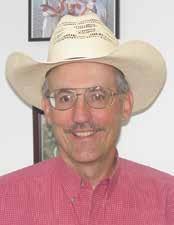
But when you hit it right, it’s magical. The further back you get, the more and bigger fish you catch. I love backpacking. If you’ve never backpacked, I’d encourage you to try it. The first time you don’t have to go on the Bataan Death March. Just pack in one mile. That way you can test your gear and figure out what other items you should have packed.

If I don’t draw any tags then bow hunting will take front and center in September. Wait until the second or third week of September when it cools off and they start bugling. It is the ultimate hunt!
Want a low-key, high shooting fun/relaxing hunt? Go dove hunting. They appear to just be coasting in but as the old outdoor writer Cotton Ward stated, when they come dipsy doodling in, they can be very deceiving and embarrass you. And after the first shot when they turn on the after burners and leave you with an empty shotgun and nothing to show for it, you’re toast.
Doves make great jalapeno poppers. Breast them out. Slice the breast in half and marinate for at least four hours. Cut a slice of onion and jalapeno and put with a ½ breast and wrap with bacon and pin it together with toothpicks and then smoke/grill. Great appetizers.
Where’d the time go? I’m out of space but not out of ideas. See you next issue. n
For more information, contact Tom at tomclaycomb3rd@gmail.com

 By Jason Herring
By Jason Herring



“Looking diligently lest any man fail of the grace of God; lest any root of bitterness springing up trouble you, and thereby many be defiled; lest there be any person like Esau.” — Hebrews 12:15-16
Esau was the oldest son of Isaac and Rebekah. Born only moments before his twin brother, those seconds entitled him to patriarch status in a promised lineage of descendants that was only decades in the making. Esau couldn’t have been more different than his younger brother Jacob.



Jacob was a momma’s boy who grew up to be a mild man preferring the comfort of tent life. Favored by his father, Esau was a skillful hunter who preferred the outdoors. He craved his father’s approval, and nothing brought more accolades from his dad than when he brought home a fresh kill and made his father a meal from his wild game. The difference in appearance between the twins was striking as well. Esau was a hairy man. Jacob was smooth skinned. Esau was a man’s man. Jacob was not. Esau was also a ladies’ man who seemed to get around with the local women. Jacob was anything but.
There doesn’t seem to be much sibling rivalry between the two brothers growing up. Jacob never tried to outhunt his older brother, and Esau never competed for his mother’s affection. The rivalry would develop later over the family legacy. The boys both grew up hearing the same stories of how their grandfather had left the Ur of the Chaldees to live a nomadic life away from the comforts of civilization.
Isaac had the same visions that their grandfather had. They were the beginnings of a great nation through whom all other nations of the earth would be blessed. But Esau never quite saw it that way. The family tree was a sapling and Esau probably discounted the stories he heard as a kid as family folklore and legends. He didn’t seem to give much credence to these divine revelations, and it didn’t help that he preferred the company of the local pagans.
One afternoon after a long exhausting hunt, Esau returned home empty-handed. Famished, he was greeted by the smell of the red stew that his brother was preparing to go along with their evening meal. Esau sold his birthright for a bowl of red stew and this transaction would mark his descendants as the nation of Edom, which means “red” from the stew that he so coveted. Esau embraced this name and it would burn for centuries like the fires that warmed his brother’s kettle. Like all blame-shifters, Esau refused to take responsibility for his actions.
Years passed and the young men grew up into middle age when it came time for their aging father to pass on the second most important inheritance: the family blessing. Once again, a bowl of stew becomes pivotal in the story as Jacob goes to his father disguised as his older brother with a bowl of his favorite meal. Unconvinced at first, Isaac interrogates his son, but as Jacob leaned in to kiss his father, Isaac smelled his clothes and decided that it was indeed his oldest and gave him the blessing of his father Abraham that had been passed on to him. The ruse worked. The prophecy given to the mother was fulfilled. Jacob would carry on the legacy of his father and grandfather, and the older would serve the younger.
When Esau returned from his hunt and learned what Jacob had done, he vowed that he would kill his brother as soon as his father passed away. Jacob fled to live with his uncle and twenty-one years passed before the brothers would see each other again. At their reunion, Esau pretended to forgive Jacob and move on from the past. But his forgiveness was only superficial and never penetrated the surface of appearance into the depths of his heart.





As Esau settled in his wilderness fortress near Mount Sier, Jacob lived in the Land of Canaan before eventually moving to Egypt. Over time, Jacob’s descendants would return to Canaan and build a mighty and prosperous kingdom. From across the way, Esau’s descendants would look at Israel in spite and envy. Those blessings belonged to them. That kingdom was rightfully theirs. Edom became the sworn enemies of Israel.


Seven of the Old Testament prophets prophesied judgment on Edom for their desire for vengeance. The prophet Obadiah informs us that when Jerusalem was besieged and ransacked by the armies of Babylon and the inhabitants of Judah were carried to captivity in Babylon, Edom not only refused to come to their aid; they rejoiced. The Edomites went into the city and took of the spoils of war, plundering the homes of their brothers who were now in exile. And it gets worse. They stationed guards at the crossroads to stop any Israelites trying to escape. The refugees were then returned to the Babylonians to show their solidarity with the empire and satiate their lust for vengeance. “For violence against your brother Jacob, shame shall cover you, and you will be cut off forever,” the prophet would inscribe. The prophet Amos said:
Thus says the Lord: “For three transgressions of Edom, and for four, I will not turn away its punishment, Because he pursued his brother with the sword, And cast off all pity; His anger tore perpetually, And he kept his wrath forever.” (Amos 1:11)
Their anger tore perpetually from generation to generation, and eventually, the unresolved anger brought forth wrath and the desire for vengeance. And it all started with a root of bitterness. Our minds are like a lawn or garden which must be constantly attended to. Every summer I engage in the Battle of the Lawn. The sprinkler heads have to be checked, the lawn mowed and fertilized, and weeds pulled up and sprayed. It never ends. Dandelions are the worst. No matter how many times I spray and spread fertilizing granules that contain weed killer, they still manage to pop up – pesky little seeds brought in from the wind and birds and who knows what else.
Our mind works the same way. Past trauma lies buried deep within our brains, and we are hardwired to respond to verbal assaults no differently than we respond to the physical. This is why letting go is such a hard process that can take years. We can profess forgiveness and attempt to move on only to have latent feelings emerge at random moments like a dormant volcano turned active in our lives. You don’t even have to be thinking about it. You could be sitting in traffic or working out at the gym or watching a TV show when suddenly and inexplicably a memory pops into your head with all of the connected emotions.
Just like a weed.




Continued on page 29




Some days in history live in infamy.
Like December 7, 1941. The day Japan bombed Pearl Harbor, killing 2,403.

Or November 22, 1963. The day that President John F. Kennedy was assassinated.
Or September 11, 2001. The day America was attacked by Saudi terrorists, killing 2,996.
These disastrous and destructive dates are unforgettable. Moments wracked with fear, despair, confusion, pain and loss. And yet, none of these horrific American moments compare to a particular day in Jewish history known as Tisha B’Av. According to one Jewish organization, it’s “the saddest day on the Jewish calendar.” 1
Tisha B’Av (ninth day of the month Av) has been a day of continual despair, disaster, destruction and death for the Jew – for thousands of years. Early in the Exodus from Egypt, twelve spies explored the “Promised Land” (Numbers 13) and, on the ninth day of Av, returned to report their findings. Ten scouts feared the land was impossible to conquer, while two spies (Joshua and Caleb) believed otherwise. As a result, God halted their journey and punished the entire nation to wander 40 years in the wilderness.
That’s when Tisha B’Av was born as a day for Jews to remember. Over the centuries, this “holy day” evolved into 25 hours – sunset to sunset – of mourning, fasting from food/drink, a cessation of work, and abstinence from pleasurable activities (including washing/bathing, use of creams/oils and leather shoes, and sexual relations). A Jew cannot study the Torah on Tisha B’Av, unless its “distressing texts” from Lamentations, Job and Jeremiah. During the fasting hours, it’s customary to sit on the floor or a low stool. This food fast begins by consuming a hard-boiled egg and bread, dipped in ashes.
According to the Midrash, God proclaimed about the ninth day of Av (Tisha B’Av): “You cried to me pointlessly, I will fix for you [this day as a day of] crying for generations.” 2
And that prophecy has proven true, time and time again. Tisha B’Av is an historic day for Jewish tragedy:
• 586 BCE: On Tisha B’Av, the first Jewish temple, constructed by Solomon, was burned to the ground by the Babylonian king Nebuchadnezzar. It was the day many Jews like Daniel, Shadrach, Meshach


and Abednego were forcibly removed as captives to Babylon. It announced the end of Israel’s golden age of kings.
• 70 CE: On Tisha B’Av, the Romans destroyed the second Jewish temple. For a bloody three and half years (66-70 A.D.), the Romans slaughtered Jews. During the destruction of Jerusalem, Jews starved to death as Rome cut off supply chains. Others perished of disease, murder and suicide. Thousands of deserters were crucified. The historian Josephus claimed over a million Jews died in the Jewish-Roman War. And, just as Jesus prophesied in Matthew 24:1-2, the Jewish temple at Jerusalem was razed to the ground, save a portion of a retaining wall.

• 135 CE: On Tisha B’Av, the Roman emperor Hadrian slaughtered a half million Jews during the Bar Kokhba revolt. To squelch further rebellion, the emperor outlawed the Torah and canceled the Hebrew calendar. He murdered Jewish rabbis, incinerated sacred scrolls, and plowed under the Temple Mount. In his attempt to erase Jewish history, Hadrian renamed Judea “Syria Palaestina” or Palestine. According to the historian Eusebius, at that point, all Jews were denied access to Jerusalem (renamed “Aelia Capitolina”) in honor of Aelia Hadrian. Jerusalem was now Hadrian’s capital. On penalty of death, Jews were prevented from dwelling anywhere near Jerusalem. Hadrian then built a temple to Jupiter where the Jewish temple once stood.
At this point, the Jews scattered throughout the world. However, every year – on Tisha B’Av – they stopped to humbly mourn, fast and pray for what they once possessed. Things improved slightly when Constantine rose to power in the early fourth century. This Christian emperor allowed Jews annual access to “Roman” Jerusalem for one day (Tisha B’Av) to “mourn, fast and pray.” The place the Jews chose to pray was the remnant “western wall.” In time it became known as the “Wailing Wall.”
In 638 A.D., Jerusalem was captured by Muslim invaders. Several decades later, the Dome of the Rock mosque was erected where the second Jewish temple once stood. In the long course of time, the land of Israel was invaded, captured, and occupied a dozen times by various nations, including Turks, Mongols, Egyptians, French and Syrians.
Since the Middle Ages, Tisha B’Av continued as a day of pain for the Jew:
• 1096 CE: The First Crusade slaughtered 10,000 Jews in France and western Germany.
• 1290 CE: Jews expelled from England
• 1308 CE: Jews expelled from France
• 1492 CE: Jews expelled from Spain
• 1914 CE: Germany’s entrance into World War I resulted in upheaval and uprooting of Europe’s Jews, creating social chaos.
• 1941 CE: The German Nazi party approved “The Final Solution” to exterminate the Jew. A third of the world’s Jews were murdered in the Holocaust.
• 1942 CE: The mass deportation of Jews from the Warsaw Ghetto

• 2005 CE: Jews forced to evacuate Gaza through a “disengagement deal” led by the U.S.
To this day, on Tisha B’Av, faithful Jews stop to mournfully remember this terrible, sad day and Israel’s past glory that cannot be recaptured. It’s a day of despair, disaster, destruction, and death for the Jew.
Tragedy that left a land flowing with milk and honey in ruins.
Mark Twain visited the Middle East in 1867 and penned: “Palestine sits in sackcloth and ashes.” 3
Sources:
He described the terrain and cities as “desolate and unlovely... rags, wretchedness, poverty and dirt...Jerusalem is mournful, and dreary.” 4
Tisha B’Av. The ninth of Av. A Jewish day that lives in infamy. And a testament to nations that reject God. n

Dr. Rick Chromey in an historian, author and speaker who helps people interpret history, navigate culture, and explore faith. In 2017 he founded MANNA! Educational Services International to serve churches, Christian schools and faith-based organizations with inspirational “edutrainment.” Rick and his wife Linda live in Star, ID.
Christian Living readers may use this QR code to subscribe to Rick’s inspirational (history, culture, faith) Morning MANNA! (M-F) email. www.mannasolutions.org

1) “What is Tisha B’Av?” Chabad.Org: https://www.chabad.org/library/article_cdo/aid/144575/jewish/What-Is-Tisha-BAv.htm


2) The Midrash is expansive Jewish biblical exegesis using a rabbinic mode of interpretation prominent in the Talmud (a commentary on the Torah). Numbers Rabbah 16:20.

3) The Innocents Abroad, or The New Pilgrim’s Progress by Mark Twain (San Francisco: Bancroft and Co., 1869): 607. Downloadable at Google Books.
4) Ibid., 559-560.

“Commit your way to the LORD; trust in Him, and He will act.” (Psalm 37:5)
Last April I took a deep breath and clicked “submit” on a registration form to join a fundraising event that I’ve been wanting to participate in for five years: a grassroots, fully volunteer-run organization that sends 100% of its proceeds to children in India suffering with HIV/AIDS.



Amazing, right? What joy it is to be a small part of an organization like this. So why did it take me five years to click that submit button?
Because this particular fundraising opportunity involves running. A lot of running. Four half marathons in four weeks; a total of 52.4 miles, to be exact.
The problem is, I’m not a runner. I send my running friends silly memes about running. The last time I ran was when I participated in the Color Run over ten years ago. I distinctly remember that as I crossed the finish line and entered the fun cloud of colored powder being thrown at me I thought, “Welp. That was neat. But I see no reason to run any further than those three miles. Ever.”
So why on earth did I sign up to spend my summer training to run four half marathons in the fall?
These are the reasons I wrote down last April:
• Because I want the discipline of training my body to mirror the more important discipline of training my spirit and mind to do hard things.

• Because hard doesn’t equal bad.
• Because in a very small way this training can help provide for children who need food, shelter, and life-changing medicine, and while I train, I can do the important work of praying for them and their caretakers.
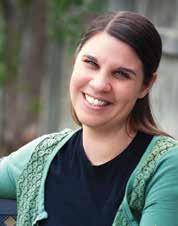


• Because why not me?
That last one is where I landed and what I come back to when a run is really difficult and I want to quit.
Why not me? I’m able-bodied (although my body has absolutely disagreed with that sentiment plenty over the last four months) and I’m willing (again, that’s had to be readjusted a few times).

In the beginning of this process, a few runners told me that this training would greatly mirror my spiritual walk. I couldn’t wait to see that. I was going to spend all of my time praying and be so spiritual, and (whispering) maybe lose some weight, too.

It took a while to see what they were talking about. In the beginning I would pause my music or podcast to try to pray and all that came out was, “I’m going to die. Am I even breathing?”
And I’ve gained weight instead of losing it. So. That’s fun.
But with daily obedience and setting out 3 times a week for the last 15 weeks, the Lord turned those desperate prayers for breath into real


love continues forever,
ones for the children. I learned that I don’t need to spend all of my time on a run praying or trying to be ultra-spiritual. A sweet friend reminded me that it’s enough to use that time to discipline my body since God is helping me to discipline my soul and mind in other ways. He is teaching me diligence and endurance and obedience bit by bit, body, mind, and soul in His way and in His timing.

No, I didn’t slim down, but He has reminded me to pray for the orphan and to be thankful for all that I have. And I have a lot.
On long runs when I grow hungry, thirsty, and weary, He reminds me that He is the Bread of Life (John 6:35), He provides living water to those that believe in Him (John 7:38), and He is my strength and my shield (Psalm 28:7).
And although I had to reevaluate my abilities and shift to a run/walk method for the 52.4 miles, He reminded me that His grace is sufficient, and His power is made perfect in weakness (2 Corinthians 12:9).
Most of all, in His abundant grace, He also made me see how much of my life has been spent in luxury, especially compared to the children I run for. As my legs cramp, my lungs scream, and I think I can’t possibly take another step, the Lord reminds me that I have spent enough time worshipping my idol of self-comfort and it’s time to kill it. This is one way.
So why am I sharing all of this with you? After all, one of my favorite memes says, “Unless you fell off of the treadmill, no one wants to hear about your workout.”
First of all, I wanted to tell you about Fiftytwo.Four because they are truly an amazing organization and I hope you will check them out and pray about joining them next year. I borrowed this from their website:

Fiftytwo.four is a 501(c)3 community based non-profit organization. We operate solely on lots of amazing volunteers and donations…amazing people that simply want to use their lives to make a difference in the lives of a lot of beautiful children in India that need our help. 100% of the money that we raise is sent to the orga-
nization that we support in India. Our money is specifically designated for the endless needs of HIV/AIDS orphans…Some ways that our money has been used in the past…medical needs, nutritious foods, education costs, medicine, building costs for new HIV/ AIDS facilities/orphanages, vehicles to transport the children.”
If you’re able, I also humbly ask that you consider donating to my run – or if you know another runner, to their run, it all goes to the same place – at www.fiftytwofour.org.
Mostly, my dear readers, I ask you to pray for me. For all of us that are participating. That we will endure for the rest of the training and safely make it to all four finish lines having done our best for the Lord and for these children.
Lastly, but most importantly, I ask you to pray for these children, that they would know God’s love and His gospel and that they would turn to Him in repentance and follow Him. That those who are caring for them will be encouraged and strengthened by His glorious might. And that He will return soon and make all of these crooked ways straight.
He is good, and He is able. We run (and walk) for His glory. n
“By this we know love, that He laid down His life for us and we ought to lay down our lives for the brothers. But if anyone has the world’s good and sees his brother in need, yet closes his heart against him, how does God’s love abide in Him? Little children, let us not love in word or talk but in deed and in truth.” (1 John 3:16-18)
Bethany Riehl lives in the Treasure Valley with her husband, three kids, and one super chill dog. She writes articles and fictional novels when she can, and her one desire is to point others to the love and sufficiency of Jesus Christ.

 By Doug Hanson
By Doug Hanson

Despite riding our bikes slowly uphill for 25 miles we still hadn’t reached the summit of Beartooth Highway in Montana. Our goal was another 10 miles away, but lightning, thunder, and a hailstorm rolled in, and we were done. We turned around and made haste back to the valley, taking advantage of the quick descent that going downhill offered.
Charles Kuralt once called the Beartooth Highway the “the most beautiful roadway in America.” The Beartooth Highway climbs to a hard-to-breath 10,947 feet above sea level. Since its completion in 1936, the Highway has thrilled millions of visitors with its amazing views of one of the most rugged and wild areas in the lower 48 states. Like many mountain passes, the Beartooth Highway is a combination of curves and straightaways as it navigates the challenging Rocky Mountains terrain.
We enjoyed riding down the mountain, but to successfully reach the valley we had to navigate the contour of the highway. Social Security can be like that. It can be an enjoyable ride for retirees, including nice straightaways, but there are curves in the road that we need to recognize.
One Social Security curve you may have read about is that it will run out of money in 2033. That is somewhat deceiving. Social Security is funded through payroll taxes; both employer and employee pay a 6.2% Social Security tax on wages earned up to the taxable wage base. The taxes collected are invested in a trust fund, which will collect less in payroll taxes than it pays out in benefits by 2033. After that date, scheduled tax income is projected to be sufficient to pay only 76 percent of scheduled retirement benefits – and this remains the picture for the next 75 years. The pressure on Congress is likely to build over the next few years to resolve the shortfall. Since 46 million retired Americans receive Social Security benefits, it is hard to imagine that Congress could avoid addressing the issue.
Another curve is that we are limited in how much we can contribute to Social Security. We contribute to Social Security on the first $160,200 we earn annually. Wages earned above that are not taxed for Social Security and they don’t contribute to our future Social Security benefits. When we start collecting Social Security, there are more curves. We can start collecting Social Security as early as age 62 or as late as age 70.
However, the longer we wait the higher our benefit. Also, if we start collecting before our Full Retirement Age (which is between 66 and 67, depending on our birth year), then we are subject to an earnings test. Assuming we continue to work while drawing Social Security, then some Social Security benefits are withheld if we earn over $21,240 annually. We don’t lose the benefits withheld, rather, they are suspended until we reach Full Retirement Age when they will be added on to our monthly benefits.
Once we reach Full Retirement Age, we can earn whatever we want while collecting Social Security, but we may have to pay taxes on the Social Security benefits. The income formula for determining taxes to be paid is 50% of Social Security benefits plus other taxable income plus tax-exempt interest income. If that income exceeds specified limits, then Social Security benefits will be taxed to varying degrees.
Social Security is blessed with straightaways, too. Once we start collecting Social Security, the amount we receive is increased annually to keep up with inflation. Plus, a spouse receives a spousal benefit when their working husband or wife starts drawing Social Security, and that spouse continues to receive a widow(er) benefit after they lose their loved one. Since people in the United States are living longer than ever before, Social Security can be a financial blessing for many decades, and that is a nice ride! “In his hand are the depths of the earth; the heights of the mountains are his also. The sea is his, for he made it, and his hands formed the dry land” (Psalm 95:4-5). n

Doug Hanson is an investment advisor with Christian Wealth Management in Boise, providing biblically responsible investment advice to Christians. For more information, visit investforthegloryofgod.com or contact him at doug@christianwm.com or (208) 697-3699.

Investment advisory services provided by Creative Financial Designs, Inc. Securities are offered through CFD Investments, Inc., Member FINRA & SIPC. 2704 South Goyer Road, Kokomo, IN 46902, 795-453-9600. Christian Wealth Management, LLC is not affiliated with CFD Investments, Inc. or Creative Financial Designs, Inc.






Continued from page 23
A weed of bitterness allowed to take root will choke the life out of your carefully cultivated lawn and drain the nutrients from your garden, robbing you of its fruit. Like the dandelion, it looks pretty to the undiscerning eye, which is why kids will enthusiastically bound into the house with: “Look! I picked you flowers, Mommy!” Or they blow the dried florets over the lawn to watch them float like little parachutes not knowing that they are spreading the noxious weed all over the lawn. In immaturity, ignorance or indignation, we can do the same thing. We become attracted to the false bloom of bitterness and then spread the seeds across the landscape by rehearsing our narrative to everyone who will listen, including our children. And ultimately, we are left with desolation.
Esau never comprehended what his bitterness would produce in his descendants. His anger tore perpetually until it tore him and his descendants apart. When we cling to a narrative of bitterness and anger and pass that on to our children, it brings calamity and a curse. Bitterness is a toxic weed that will choke out the fruit of the Spirit and alienate us from the True Vine of which we are the branches. Erwin Lutzer wrote: “Nursing an offense quite literally blinds us to our own faults, forces us to have skewed relationships, and warps our self-perceptions.” And it not only destroys relationships and our self-worth, unresolved anger has a devastating effect on our health. Studies show that it results in high blood pressure, heart problems, skin disorders, and can affect our digestive health. It weakens our immune system and leaves us vulnerable to a heart attack. Bitterness and unresolved anger damage the individual spiritually, mentally, physically and relationally, and it has generational consequences. And what makes this so hard, according to author Janis Abrahms Spring, is that “anger always feels justified.”

Just as our minds keep record of trauma and past hurts, we need to erect a reminder of forgiveness and our decision to move on. When Jacob had a falling out with his Uncle Laban, he erected a heap of stones (Galeed: heap of witness) to keep watch (Mizpah: watch) between the two families for peace. No such memorial existed between Esau and Jacob. Go to a craft or hobby store and buy a bag of rocks and glue them together in a stack like a kairn. Write Scripture references of forgiveness on the stones with a marker and place the memorial in a visible location as a reminder that you have forgiven “even as God for Christ’s sake has forgiven you.” n
Jason Herring is a husband to an amazing wife and father of five incredible kids. He enjoys hiking, mountain climbing and freelance writing in his spare time, but mostly spending time with his family. He has resided in Idaho for 20 years.


“The problem is you don’t believe God, Joan.” What? I thought. I most certainly do believe God!
“Well, if you do, why would you constantly struggle with feeling inadequate, inferior and insecure? Why are you continually worried, anxious and stressed about what others think of you? You fear being left out, critical words, rejection (real or imagined) and not being seen, heard or valued by others.”
Exactly—that’s normal! No one wants that!
“Nobody wants that, but when your soul finds satisfaction in the worth your Creator wove into you when He formed you in your mother’s womb (Psalm 139:13), you won’t feel the need to look further! So, whose lens are you looking at yourself through—your loving Creator’s or a critical, condemning one?”
As I was seeking and searching, praying and crying out to God, having this back-and-forth dialogue with myself, I felt the Holy Spirit provide a divine download of clarity. In that moment, I realized most, if not all, of my past pain, hangups and heartaches about my self-worth had everything to do with my believing more of the messaging from other broken humans than the Truth of my Creator’s messages about me!
That realization was a turning point for me that helped put things into their proper perspective. It helped change everything for me. Of course, I would love to report that this was permanent and I’ve not struggled with owning my God-given worth again. However, this being a true story and not a fairy tale, we both know that nothing is permanent in this human condition we’re in. Romans 12:2 encourages and reminds us to be transformed by the RE-NEWING of our minds. It’s a constant choice we get to make. Our lives are changed as our minds are made new.
You see, our biggest battle is in our beliefs: Do I believe God, my soul’s very source, or the enemy of my soul, the devil? I believe the devil’s done his destructive deed if he simply plants a doubt-seed. Isn’t that what he did to Eve? Then the dominos start to fall, and he doesn’t need to do anything else at all. Once we doubt God’s Word about our worth, we can watch ourselves shrivel and shrink back and do nothing that we were designed for. If we listen to the devil’s dialogue, it will always take us down the destruction path. “Satan is a liar and the father of lies,” John 8:44, and, “The thief (Satan) comes only to steal, kill and destroy,” John 10:10. In the ultimate contrast, Jesus then declares why He came: to give us life—abundantly!
Remember the cartoons with the angel on the right shoulder and the devil on the left? That is a simple yet powerful visual of the battle for our soul. With every thought we have a choice as to whose voice we listen to and believe! How grateful we can be for Jesus giving us the only example we need. Every time Satan showed up to tempt Jesus, He rebuked him and spoke the Word of God with complete authority! That’s our guarantee, that speaking God’s Truth dissolves all lies! That’s why memorizing the Word is so important because to speak it, we must first know it.
In the movie “Creed”, Adonis “Donnie” Johnson (played by Michael B. Jordan) is the son of former heavyweight champion Apollo Creed. He follows Rocky (played by Sylvester Stallone) as they walk up to the huge, mirrored wall in the training room. Adonis strikes a pose with a wide stance and fists up in front of his face in the fighting position. Rocky taps on the mirror with
his reading glasses and says, “You see this guy here staring back at’cha? That’s your toughest opponent! Every time you get into the ring, that’s who you’re goin’ against. I believe that in boxing and I do believe that in life.”
That scene deeply connected to me and spoke to my soul—I could certainly relate! Can you? Rocky was right! That is true in life when we are looking through the wrong lens! I was also challenged by that reality as I knew it was certainly not God’s plan for us to look in the mirror and see our biggest opponent and critic! When our beliefs are in alignment with what God says about us, the one in the mirror should be one of our biggest champions, encouragers, cheerleaders and sources of love and compassion.
I realized I had a lot of work to do if I wanted to finally begin looking at myself through my Creator’s loving lens rather than my critical, condemning one. It meant 1) DE-constructing what my beliefs had been built upon, 2) evaluating everything about the destructive dialogue I had become accustomed to, then 3) RE-constructing it on God’s Truth. It meant choosing courage over comfort and digging deep to look at all the past lies, negative labels and limiting beliefs.
Questions to filter your thoughts:
• Where is that message coming from?
• What is the source?
• Whose voice do I hear?
• Is it in alignment with what God says in His Word? If not, rebuke the devil and douse those lies with God’s Truth to finally be free!

“If you abide in my word, you are truly my disciples, and you will know the truth, and the truth will set you free.” (John 8:31b-32)
Have you ever looked at someone you love so deeply and desperately and wondered how in the world they could feel inadequate, inferior or insecure? There have been countless times I’ve wished my amazing children (now grandchildren, too) could see what I see when I look at them—their uniqueness, their talents, gifts and abilities—as I know that perspective would give them the courage and confidence to do whatever God lays on their hearts to do.
Though pale in comparison to how much God loves and celebrates us, it gives us a glimpse of how it must grieve the heart of God when we children of the King of Kings devalue ourselves. As a daughter of the King the truth is, I am a princess. Which means, when my loving Father, the King, has a beautiful banquet prepared, there is always a place for me at the table with Him.
But if I don’t make a conscious choice to believe what He says and own the worth He wove into me, I can easily be deceived into believing that I am merely a poor pauper who deserves nothing more than to scrounge around under the table for scraps. I imagine my gracious and patient Father seeing me and wondering why I’m down there—then holding His hand out, once again inviting me to sit next to Him and enjoy the beautiful banquet.
My friend, I know this isn’t easy, but no battle that’s worth fighting is. I spent so many years struggling to feel like I was enough, to know that I mattered, hoping for confirmations and affirmations from others. The problem with that is, everyone else is as broken as I am. Everyone else is seeking and searching for the same thing. We all have a legitimate need, a God-shaped void that only He can fill. In our humanness we can try and fill that legitimate need by illegitimate means: people we know,
places we go, possessions we own and positions we hold. As our Creator, He alone can assign our value and worth and no other entity has the power to dispute or refute that. For the French designer Louis Vuitton, handbags can range from hundreds to thousands of dollars. The Urban Satchel handbag has sold for a whopping $150,000.00. The “Messiah Stradivarius” is considered the most expensive violin globally, with a value of approximately $200 million. It is currently in a collection at the Ashmolean Museum in Oxford, England. The value placed on these items is based solely on the signature of their designer/ creator. For these to have social proof of their value, at least one person needed to agree enough with that assessment to purchase it. The great news for us is, no one need agree with our Creator’s assessment of us for it to be true.

I am living proof that God can put his super on your natural to give you supernatural victory where you’ve never had it before. I pray this every time I struggle with unbelief: “I believe Lord, help my unbelief!” (Mark 9:24)
Mark 12:30-31 confirms what matters to the heart of God: “‘And you shall love the Lord your God with all your heart and with all your soul and with all your mind and with all your strength.’ The second is this: ‘You shall love your neighbor as yourself.’ There is no other commandment greater than these.” So, what is the assumption there? That you and I are loving ourselves as God intended. When I am focused on loving God, and others as myself, I will not be focused on my insecurities because I am secure in Him. So essentially, I am Him-secure, so I cannot be in-secure.

Is it time to finally wage war about your worth—with words? Every moment of every day, you and I get to choose whose words we believe! n




Grab your FREE copy of Joan Endicott’s “I Get To!”® book and videos at www.JoanEndicott.com. Joan is an AwardWinning Keynote Speaker, Author and Coach whose coaching has reached over 30 countries. Meet her and enjoy her encouraging messages on Facebook and Instagram.













